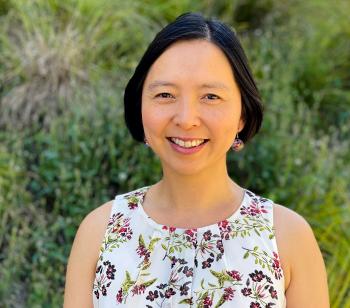Dr Holly Vuong, 2021–22
Dr Holly Vuong
Holly completed her PhD on Lyme disease ecology and moved to Australia for an Office of the Chief Executive postdoctoral fellowship with CSIRO in Canberra. Following another postdoc in the United States, Holly wanted to explore how she could have greater positive impact to improving our environment, health, and society outside of academic research. Her professional career began with interning for science policy advocacy organisations to contribute to the evidence to inform policies and followed by knowledge exchange. As a senior knowledge and engagement officer with the Threatened Species Recovery Hub, she used her natural skills in communication and networking to support knowledge sharing for greatest conservation research impact. Her current role with the Department of Infrastructure, Transport, Regional Development and Communications focuses on using futures thinking and toolkits to support policy and program line areas make better decisions today.
What were you researching before you started as a Science Policy Fellow?
As a disease ecologist, I wanted to understand the role that wildlife hosts contribute to the maintenance of pathogens in the community. With nearly two-thirds of human diseases stemming from pathogens circulating in wildlife (zoonotic diseases), understanding disease dynamics in the environment is central to the broader understanding of human disease risk.
My PhD research examined the role of biodiversity on Lyme disease risk in Dutchess County, New York, focusing on the interaction between wildlife host species supporting strains of Borrelia burgdorferi, the bacterium that causes Lyme disease. Some key findings include that short-tailed shrews and American Robins are key hosts supporting human invasive strains and that disease risk changes across space and time due to interactions of strain variation and host community diversity.
During my postdoctoral fellowship at CSIRO, I examined the interaction of native legume plant species and their rhizobial symbionts (bacteria) to understand the evolutionary and ecological drivers of rhizobial diversity.
Other research projects include whooping cough and the nasal microbiome, impact indicators for conservation research, and developing a checklist tool for allied health services in COVID-19 times.
How has your research background helped you contribute to policy development?
Conducting research includes skills in critical thinking, analyses, and testing hypotheses, and more. It also includes soft skills ranging from collaboration to communication, problem solving, decision making, and leadership.
At the Department of Infrastructure, Transport, Regional Development and Communications (DITRDC), I use my research background to facilitate and co-develop workshops for other line areas using foresight tools to support them to make better, more informed decisions today for their programs and policies.
How has the program changed your career aspirations?
This is my first foray into working for the Commonwealth government. The experience to date has been positive and I am learning how government operates and the levers associated with shaping policies and programs. I’m still learning and I see the Science Policy Fellowship program as a great opportunity to gain exposure to the public service and be a part of the workforce that could inform future policies.
What is your favourite part about working in a policy role in the Australian Public Service?
My role is more focused on supporting other line areas working in policies and programs rather than be involved in writing policies per se. I am lucky to be part of a larger team that thinks broadly, collaborates well with one another, is supportive, and values the work that I do.

